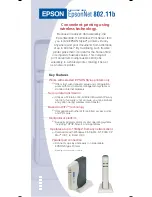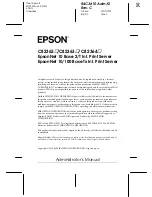The BlueArc Storage System
2
Titan SiliconServer
The Titan SiliconServer
Titan is a high-performance, enterprise-class Network Attached Storage (NAS) server, which
services file access requests issued by network clients through Gigabit Ethernet. Titan satisfies
these requests by reading and writing data located on one or more storage devices, connected
through two or four Fibre Channel (FC) links. The storage system can be configured with a
single Titan SiliconServer or with multiple servers clustered together, sharing the same storage
devices.
Titan can be configured as an Active/Active (A/A) cluster, so network requests can be
distributed between two Cluster Nodes. Should a Cluster Node fail, its file services and server
administration functions are transferred to the other server.
The Titan SiliconServer chassis is 4U (7”) high, 48.3 cm (19”) rack mountable and a maximum
of 63.5 cm (25”) deep, excluding the fascia. It consists of a passive backplane (that is not
removable), three hot swappable fan trays and two hot swappable redundant power supplies.
The front panel shows system status through two LEDs (a green
power
LED and an amber
fault
LED). The only Field Replaceable Units (FRUs) accessible from the front of the Titan
SiliconServer chassis are its cooling fans.
The unit is serviced from its rear panel, which includes additional status LEDs, connectors
(power, Ethernet, Fibre Channel, RS-232), and FRUs, such as the power supplies and server
modules. See the
Titan SiliconServer Hardware Guide
for more information on the Titan
SiliconServer hardware.


















